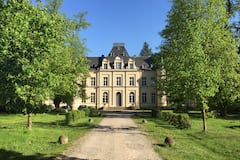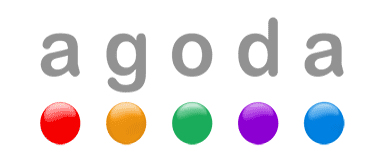Travelling to another country is an exciting time, there are so many things to do; pack your bags, check your visa, find a place to stay but in all the excitement, the language barrier is often forgotten. There are so many languages in the world but an average person speaks just one or two. Travelling to a country where English isn’t a widely spoken language can be a cause for frustration and inconvenience.
In Germany, in large cities like Berlin and Munich, English is spoken in ‘touristy’ areas but as we go towards residential areas and smaller cities, it is almost impossible to survive without some knowledge of the German language. German is considered as one of the hardest languages on the planet so learning it in the nick of time is impossible. Here are 25 key phrases in the German language that can be used as you travel around the country. Read on to learn the basic phrases in German, that every traveller should learn.
1. Simple conversational greetings

When you’re staying in another country for your vacation, it is always good to know how to greet others. A simple ‘hello’ does wonders and opens up a conversation. Knowing how to greet a person in their language can make any conversation much more pleasant. Saying 'Guten Morgen’ (good morning) to your host or local guide can make you feel like you’re truly getting the full German experience. Even if you have the rest of the conversation in English, opening and closing a conversation in German will always be appreciated by the locals!
Let’s look at some simple greetings!
- Hello: Hallo (Ha-low)
- Goodbye: Tschüss (choose)
- Good morning: Guten Morgen (goot'n maw-g'n)
- Good day: Guten Tag (goot'n ta'ag)
- Good evening: Guten Abend (goot'n ab'nd)
- Nice to meet you: Schön, Sie kennenzulernen (sch'un sa'y kenen-Zu-larn)
2. Ordering food

Experiencing the local cuisine is a big part of travelling. Going to Germany and not trying Currywurst or Sauerbraten is blasphemy! But it can be a bit tough when you know what you want to eat but you don’t know how to phrase your request. Another problem that arises while eating out is the unfamiliar dishes on the menu, the pictures look exciting but you might not know what’s what.
‘And what about tipping?’ you might ask, the tip is generally 5-10% of the bill but there’s a trick! In Germany, you don’t leave money on the table after paying the bill, instead, you tell the waiter to total the amount that you want to pay, adding the tip to the bill. Let’s assume that your total bill is 11 euros, you can say to the waiter 'dreizehn’ (13) and she’ll deduct that amount from the bills you give her.
Let’s look at some essential phrases:
- A table for two, please: Ein Tisch für zwei Personen, bitte (eyn tish drove tzvay per-zown-en bi-tuh)
- Excuse me (for calling a waiter): Entschuldigung (Ent-blame-ee-gung!)
- Can I have the menu, please: Kann ich bitte die Speisekarte haben (kan ikh bi-tuh dee spiis-uh-kar-tuh ha-ben)
- What do you recommend? Was empfehlen Sie (vas em-fEE-len zee)
- What's the special of the day?: Was ist das Angebot des Tages? (was-is-das ange-bot das ta-ges)
- The bill, please: Die Rechnung, bitte (dee rekh-nung, bi-tuh)
3. Asking for directions

When you are travelling someplace new, there’s always a good chance that you’ll get lost, especially when all the signs are in German. Google Maps is always handy when you have WiFi, but it’s not available everywhere and international data charges can make a hole in your pocket. The best way to find your way back is to ask someone for directions, preferably a taxi driver or in a store, since they can give you the most accurate information.
Let’s look at some simple phrases:
- Excuse me, could I ask you something? Entschuldigung, darf ich Sie etwas fragen (ent-schul-di-gung, daf ikh zee et-vas frra-gen)
- How can I get there? Wie komme ich dahin (ee kom-muh ikh there)
- How long does it take? Wie lange dauert das (vee lang-uh dau-ert das)
- Does this train/bus stop in- Hält der Zug/ Bus in (haylt der zoog/bus in)
- 1 ticket / 2 tickets to..., please: Einmal/zweimal nach..., bitte (eyn-mal/tz-vay-mal nakh, bi-tuh)
You might be interested in these Airbnbs!
4. Shopping and bargaining

One of my favourite things to do when travelling is shopping. There are always so many new things, and of course, buying souvenirs is a must! But most of the time the products are in another language that you can’t read or maybe its too expensive. Shops in touristy areas are always more expensive than the ones frequented by locals. Knowing how to ask for a discount or bargain in the local language can be an advantage while shopping.
Germany doesn’t have a bargaining culture, if you bargain hard or persist on a discount, you might get away with a sweet deal!
Let’s look at some shopping phrases:
- How much is this? Was kostet das (wa-s koOs-tat daas)
- It's too expensive for me: Das ist mir zu teuer (daas-ist mit-zu toy-aa)
- Can you give me a discount? Geben Sie mir einen Rabatt (gay-ben zee me eye-nen rrab-att)
- Thank you, I'll keep looking: Danke, ich suche noch weiter (dan-kuh, ikh zukh-uh nokh vai-ter)
- If I buy these together: Und wenn ich das alles kaufe (und if ikh that all kau-fuh)
- More than I expected: Das ist etwas mehr, als ich ausgeben wollte (daas-ist etwa-me-argh alsich ausben voite-a)
- How about ...?: Wie wäre es mit .......€? (wee wiare esmit)
- Can I get this gift-wrapped? Kann ich das als Geschenk eingepackt bekommen? (kann-ich-daas ais-gushenk aying-pakt bekhOmen)
Germany Tour Guide
Thomas Boeer
Dear travellers, since 1992, when I began my studies as an expert in tourism at the International School of Tourism in Zürich, my life has been completed thanks to representing this wonderful country to people from all over the world. Today we work for the most important companies from this country as a guide and driver. we know every corner of this beautiful paradise made by hand. We know their traditions and customs, their best routes and the best places that few tourists have had the opportunity to enjoy. We have had the great opportunity to guide very important people of different cultures and we have excellent references. Our passion for this job will offer you an unforgettable experience for a lifetime. We will make you feel at home. Welcome to Switzerland, the whole year around! The slowness gives us the time to enjoy what we do.
Tours by Thomas
5. Medical emergencies

When we are travelling to another country, we are often unaware of the healthcare system of that country. We never imagine that we might get sick or have a medical emergency, it is far from our mind. And if we do get sick it’s almost impossible to know which medicine to take or where to find a doctor since everything is in another language. Not everyone understands English so knowing a few German phrases that you can use in emergencies is always good when travelling around Germany.
Let’s look at some medical phrases:
- Can you help me, please? Können Sie mir bitte helfen (cow-zee mie bittE heifu)
- I do not feel well: Es geht mir nicht gut (es get mie niht goot)
- I need to see a doctor: Ich brauche einen Arzt (ikh brau-khuh eyn-en art-zt)
- Is there a hospital near here? Gibt es ein Krankenhaus in der Nähe (gibd-es en kAan-kan-house in-de nieh)
- I need some medicine: Ich brauche Medizin (ikh brau-cow med-ee-tzin)
- I am allergic to..: Ich bin allergisch gegen…(ikh bein alle-er-gish geegan)
- Call an ambulance: Rufen Sie einen Ambulanz (woofen zee ainen ambU-lanze)
Speaking the language

Learning the German language to travel in Germany is not really necessary, you can always get by with some language hacks. There are numerous translating apps that can do the job for you but trying to speak a different language yourself is always fun and satisfying, the locals will certainly appreciate it! Tschüss!
History
Get Trip101 in your inbox
Unsubscribe in one click. See our Privacy Policy for more information on how we use your data

























Create an account to